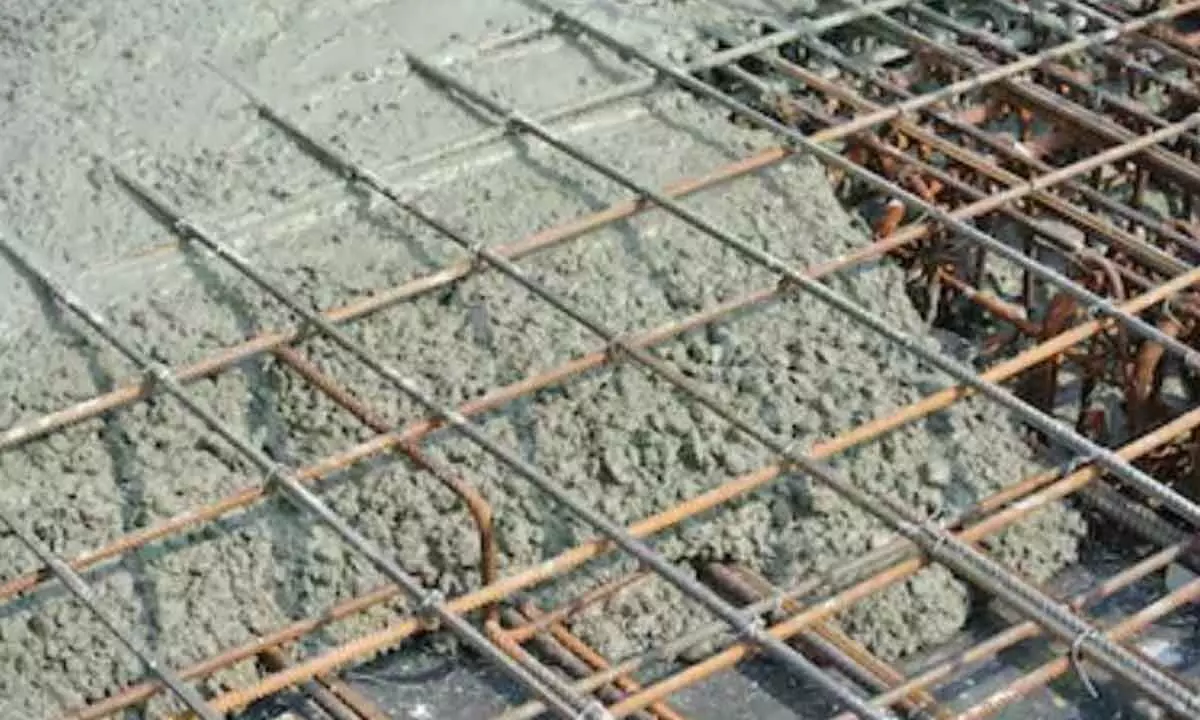Steel, cement require Rs 47L cr investment
To meet net zero goals: Report
image for illustrative purpose

The CEEW analyses also found that an 8–25% reduction in steel emissions and a 32% reduction in cement emissions is possible without any price increase by adopting efficient technologies such as waste-heat recovery and energy-efficient drives and controls
Key Points
♦ India is 2nd largest producer of steel & cement in the world
♦ Steel & cement are emission-intensive hard-to-abate industries
♦ Both plants need Rs 1L cr each year in additional OPEX to go netzero
New Delhi: The domestic steel and cement industry will require an additional Rs 47 lakh crore investment to meet net zero targets, according to a report. India is the second-largest producer of steel and cement in the world, and both are emission-intensive hard-to-abate industries.
“India’s existing steel and cement plants will require Rs 47 lakh crore ($627 billion) in additional capital expenditure (CAPEX) to achieve net-zero carbon emissions,” the Council on Energy, Environment and Water (CEEW) report said. These two sectors will need Rs 1 lakh crore each year in additional operational expenditure (OPEX) to go net-zero, the report added. The CEEW analyses also found that an 8–25 per cent reduction in steel emissions and a 32 per cent reduction in cement emissions is possible without any price increase by adopting efficient technologies such as waste-heat recovery and energy-efficient drives and controls.
Moreover, a 33 per cent reduction in the combined carbon emissions of the steel and cement industries could be achieved with just 8.5 per cent of the total additional CAPEX and 30 per cent of the additional annual OPEX. This reduction can be done without considering the need for carbon capture and with the requisite supply of alternative fuels and raw materials. Arunabha Ghosh, CEO, CEEW, said, “Decarbonising India’s steel and cement industries will not only help it meet its climate ambitions but also make its industries market competitive and future-ready in a world with increasingly sustainability-driven regulations.”

